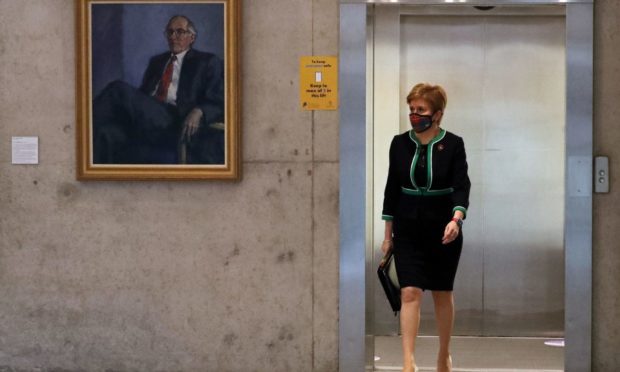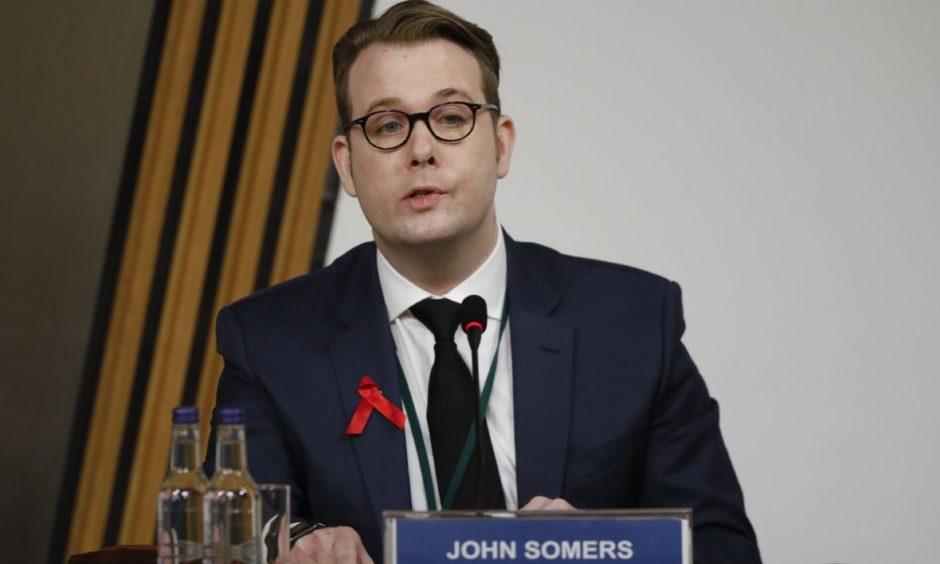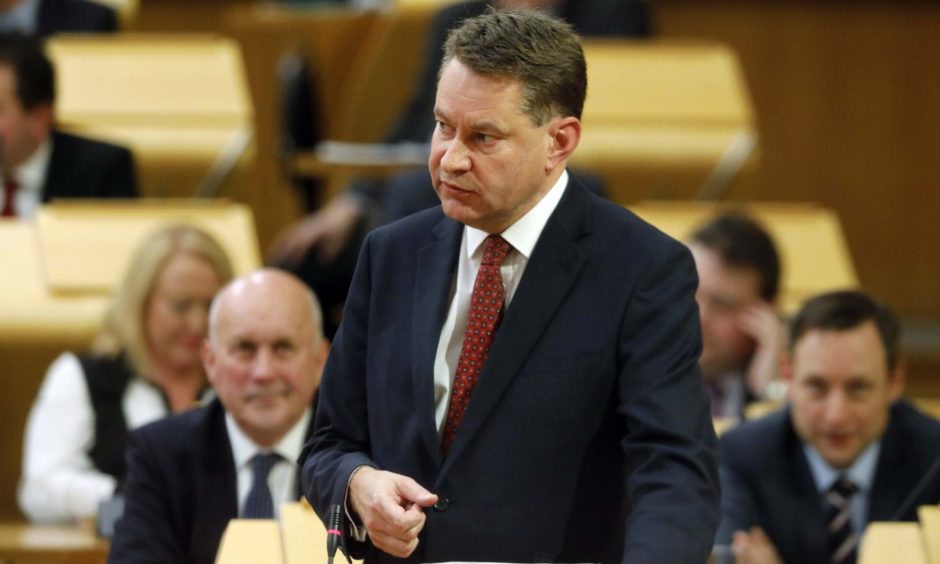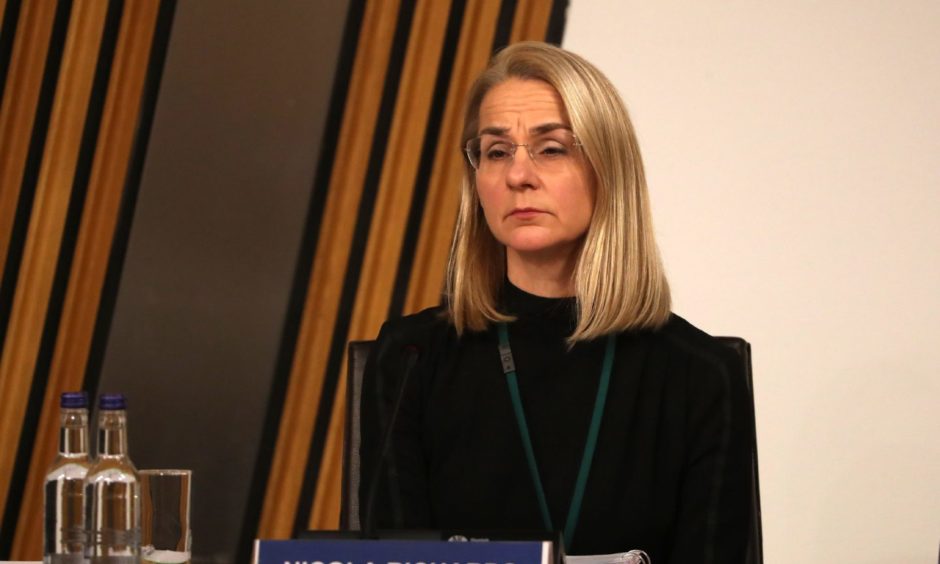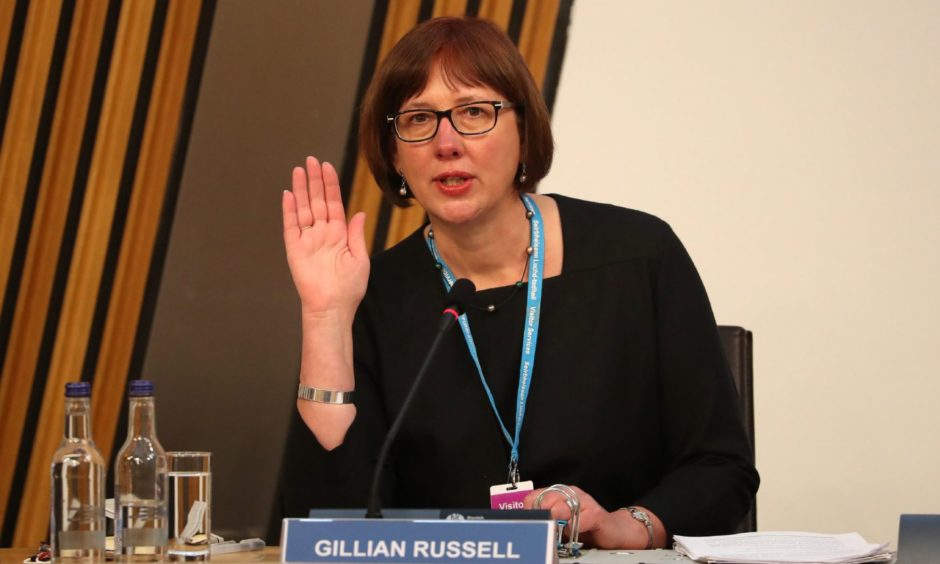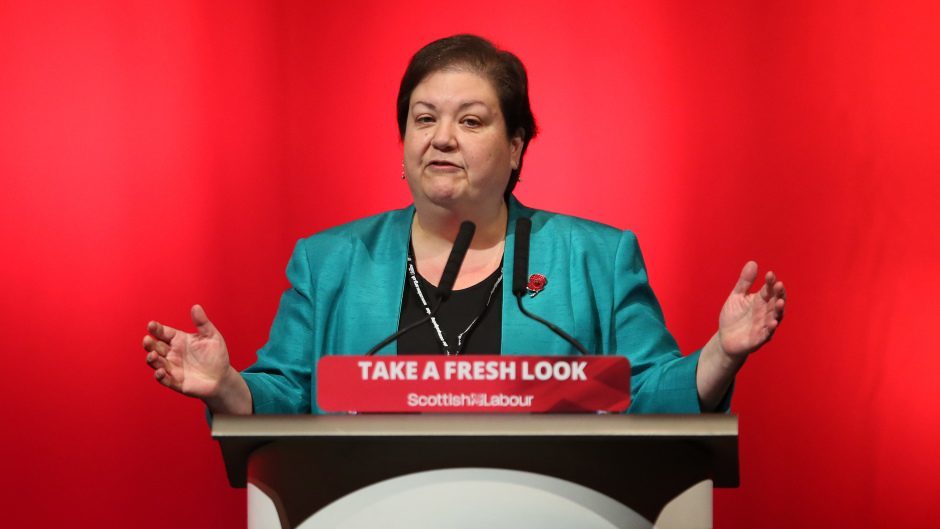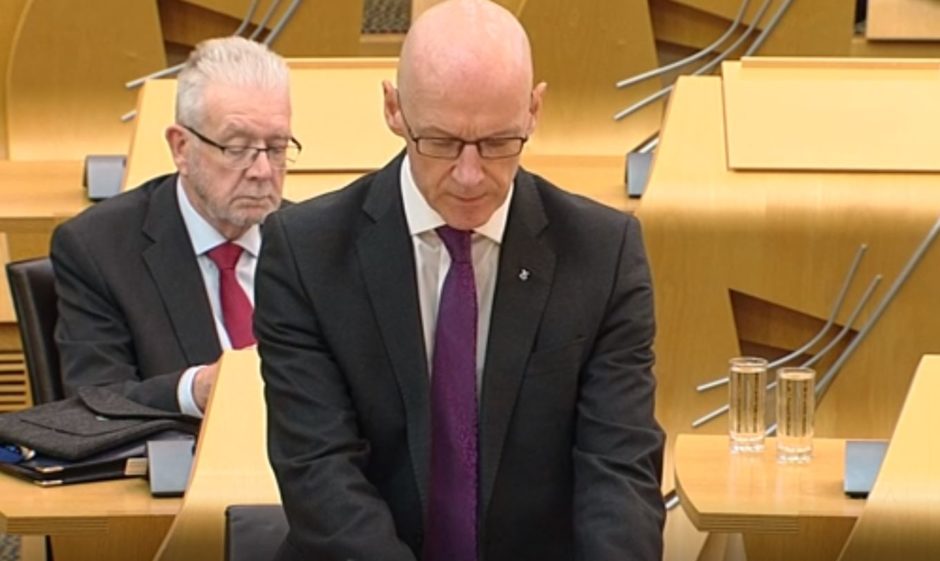A close aide to Nicola Sturgeon has “definitively and categorically” denied informing the first minister or other senior government officials about a secret meeting with a woman who complained about Alex Salmond.
John Somers, the principal private secretary to the first minister, told Holyrood’s Salmond inquiry on Tuesday he only told his line manager, Barbara Allison, about the contact with the complainant known as “Ms A” on November 20 and 21 2017.
When details of the meetings emerged last month they had fuelled claims that a Scottish Government harassment policy was being developed that month in 2017 for use against Mr Salmond.
On November 22, one day after the second meeting, Mr Somers had forwarded a letter from Ms Sturgeon to Scotland’s most senior civil servant, Leslie Evans, asking the permanent secretary to confirm that the new harassment policy being drawn up included consideration of complaints made against former ministers.
Secret meetings
Asked whether he had mentioned the contact with Ms A to senior government figures who were drafting the harassment policy, Mr Somers said: “I can definitively and categorically say I made no reference to the meetings with Ms A at that meeting or to anyone else other than my line manager.”
He added: “I wouldn’t tell the first minister because it wasn’t my experience to share. That would be my first priority.
“Secondly, had I done that I would have put the first minister in a state of knowledge about something she couldn’t have taken action upon at that point.”
I can definitively and categorically say I made no reference to the meetings with Ms A at that meeting or to anyone else other than my line manager.”
John Somers
Mr Somers had earlier told the committee he did not know why Ms A had asked to meet him at the time.
“My PA had contacted me to say that Ms A had wanted to meet with me, and when he had asked why, she said it was a personal issue,” he said.
“So I had no idea beforehand why I was meeting with her. To be frank, I thought it was about, essentially, a job.
‘Quite overwhelmed’
“In the course of that disclosure Ms A had said to me that there had been an experience in the past that she wanted to share and she wanted to share it in a way that would improve the organisation and make sure that no-one else would have to go through that experience again.
“She was not making a complaint, but she wanted to assess her options as to how she may best share that.
“One of those options would be potentially speaking to the first minister about her experience and so that, although I can’t speak for her, I assume, is why she came to me.”
Mr Somers said he asked Ms A if he could take advice from his line manager.
“I’m very happy to say to the committee that I was quite overwhelmed in that meeting. I had never come across anything like this in my career before,” he said.
“And I asked if she would allow me to, quickly that day, share that disclosure with my line manager and no-one else, to take advice and come back to her the following day.
“I came back to her the following day and we agreed that she would then speak to my line manager directly, who was Barbara Allison.”
Police involvement
MSPs investigating the Holyrood government’s handling of allegations against Mr Salmond also heard on Tuesday from Judith Mackinnon, the civil servant who led the government’s botched internal investigation into the complaints.
Committee members questioned the official, who is head of people advice at the government, about being asked to “sound out” the two complainers about reporting to the police.
Murdo Fraser MSP asked: “Would it be fair to say that the complainants were reluctant themselves to report to the police?”
Ms Mackinnon said: “You could say that. I don’t think it had been their intention, when they initially had come forward, to do that.”
Asked if it would be fair to say the matter would not have gone to the police had the Scottish Government not reported it, she replied: “I can’t say that for sure.”
Nicola Richards, director of people at the Scottish Government and Ms Mackinnon’s line manager, confirmed the women did not want their complaints about Mr Salmond to go to the police.
“I think it was very clear that it was not their wish, not their preference. It had not been, I think, where they had begun,” she said.
“I think they fully understood, and we were always clear, that it might be a judgement as an organisation that we had no choice but to refer the matter to the police, and they fully understood that.”
Ms Richards also confirmed it was Ms Evans who had taken the final decision to contact the police.
Gillian Russell, a director of health workforce at the Scottish Government who acted as a “confidential sounding board” to complainants in the early stages, spoke to Ms A on November 22 2017.
I think at the time I did record that I thought it could raise… it could potentially raise matters of a criminal nature.”
Gillian Russell
She told the committee on Tuesday that she did not know at the time that she had met Mr Somers in the preceding days.
Ms Russell said: “She raised a series of very significant issues with me and I obviously found what she said to me profoundly difficult, actually, so I’m just being honest about that.
“In response to that we did discuss some of the things and issues that she may want to think about in taking matters forward.
“I don’t want to go into too much detail, but you’ve asked specifically about the police.
“I think at the time I did record that I thought it could raise… it could potentially raise matters of a criminal nature. I did record that at the time.”
Ms Russell did not find out that the police had been contacted until the story broke in August 2018.
The committee was established after Mr Salmond objected to the way the complaints had been handled and took successful civil legal action against the government he used to lead.
A judicial review found the process had been “tainted with apparent bias”, an outcome that led to Mr Salmond being paid more than £500,000 in taxpayers’ cash to meet his legal costs.
‘Obstruction of the committee’s work’
At the start of the session, Committee Convener Linda Fabiani criticised the Scottish Government for submitting 300 new documents to the committee on Monday evening, meaning they could not be processed in time for Tuesday’s meeting.
“I speak for the committee when I say this is not a satisfactory way to proceed in effective scrutiny but we will persevere in the interests of progressing the task the parliament has tasked this committee to fulfil,” she said.
Labour MSP Jackie Baillie, also a committee member, said: “I think this committee needs to reserve the right to recall the witnesses that we have before us today when we have seen these documents.
“And can I express my anger at the continuing obstruction of the committee’s work by the Scottish Government.
“It is clear to me that this is part of a wider pattern of behaviour, and it disrespects both the committee and parliament.”
It was the latest clash between the committee and the Scottish Government over evidence.
Legal advice
The failure to reveal the legal advice received by the Scottish Government during its handling of the complains has sparked a bitter row, and two humiliating defeats in Holyrood.
On Tuesday Deputy First Minister John Swinney wrote to the committee to try to reach a resolution.
He said: “I have discussed this issue with Cabinet colleagues this morning and I am keen to consider with you how we might establish a practical way that enables the committee to have access to the information it seeks.
“Ministers are anxious to avoid creating a precedent that will impact negatively on the future ability of Scottish Government administrations to seek and receive legal advice in confidence, consistent with the long-standing principle of legal professional privilege. ”
He added: “I recognise, given the timescale for the committee to complete its evidence gathering, the need for urgent progress on this matter.
“I would like to propose an initial discussion between officials tomorrow at which the government will propose mechanisms to establish an appropriate way forward on this matter.”
Swinney ‘dragging his feet’
Responding to the letter, Mr Fraser said: “John Swinney continues to drag his feet rather than respecting the will of the Scottish Parliament and releasing the full legal advice his government received.
“It is clear he is trying to bide for time and hoping this issue will go away.
“In the name of transparency, John Swinney must release this advice without any further delay. No ifs, no buts.
“Otherwise the public who saw £500,000 of their money wasted on this case will only think he is treating them like fools.”
